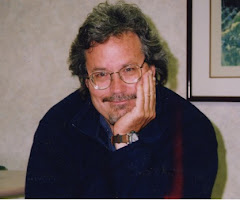But first: we need a new term for the position that yes, there may be global warming but no, it is probably not PRIMARILY caused by human dissipate activity. Yes, there is human dissipate activity on a widespread, sinful, and absolutely astounding scale. No it is not even close to the main cause for global climate change. Hmmmm.
How about: Scientific Skepticism?
Nigel Lawson, former Secretary of State for Energy and Chancellor of the Exchequer (No, really.) has this to say in a new book entitled An Appeal to Reason: A Cool Look at Global Warming:
So the new religion of global warming, however convenient it may be to the politicians, is not as harmless as it may appear at first sight. Indeed, the more one examines it, the more it resembles a Da Vinci Code of environmentalism. It is a great story, and a phenomenal best-seller. It contains a grain of truth--and a mountain of nonsense. And that nonsense could be very damaging indeed. We appear to have entered a new age of unreason, which threatens to be as economically harmful as it is profoundly disquieting. It is from this, above all, that we really do need to save the planet.
I also received today a DVD put out by the Idea Channel entitled Unstoppable Solar Cycles, The Real Story of Greenland. (The video arrived attached to the latest issue of National Review magazine, should you like to obtain a copy yourself). The gist of the video is that Greenland was once a green and lush farming island. It was actually greenland. And when the climate began to grow colder and the animals died and the people died, the survivors wondered if there was something they had done to cause God to make Greenland into a frozen arctic. Here we are today, wondering if "there is something we've done" to cause the earth to heat up or--twenty years ago--to cool down. And here we are today, beginning to speak in almost religious language about our effect on the planet.
The cold coast of Greenland is barren and bare;
No seedtime or harvest is ever known there.
and the birds here swing sweetly in mountain or dale.
But there's no bird in Greenland to sing to the whale.
Farewell To Tarwathie
See? Even popular folk songs testify to the wretched conditions on Greenland. What happened?
Two scientists are interviewed in the video, Dr. Willie Soon, an astrophysicist with the Harvard-Smithsonian Center for Astrophysics, and Dr. David Legates with the Center for Climate Research at the University of Delaware. Both make the same general point: the forces at work to cause climate change are so enormous, so overwhelming, that to point to man as a main cause is laughable. The primary cause?
Legate: "The sun is the key ingredient to climate."They ask the question: what comes first, temperature change, or a rise in carbon dioxide? They answer, that always earth's temperature rises first--sometimes hundreds of years before a rise in CO2. The question becomes, what is the driver and what the effect? They argue that it is likely the impact of solar change on earth's climate that puts us through these 1500 year cycles of cooling and heating.
Soon: "The sun in terms of its light energy output is probably the only true external driver of the earth climate system, because there are no other forces on earth that will supply that amount of energy..."
Dr. Soon: "Most of us still have that nagging question in us, you know. Yes we have emitted all this carbon dioxide. Are we really really melting all the ice cap? Or is it something even more powerful than that, I mean meaning that could it be even the sun which is doing it?"
At the end of a long, cold winter, I am of the mind that we really don't know what impact our profligate lives have on climate change. We have become homocentric in our paranoia.








